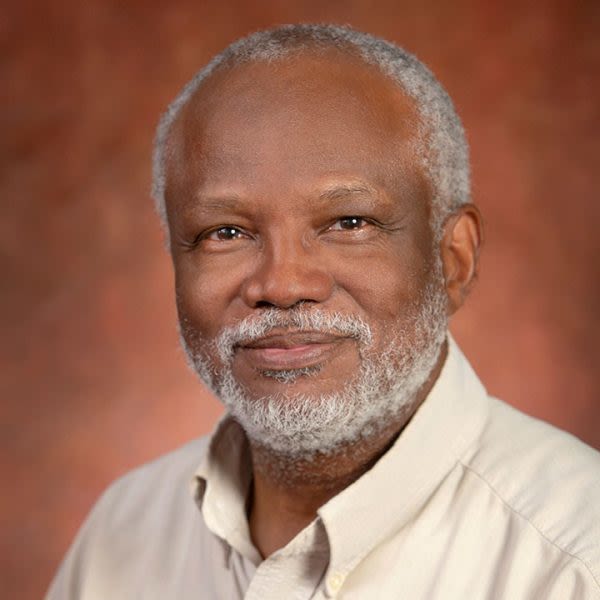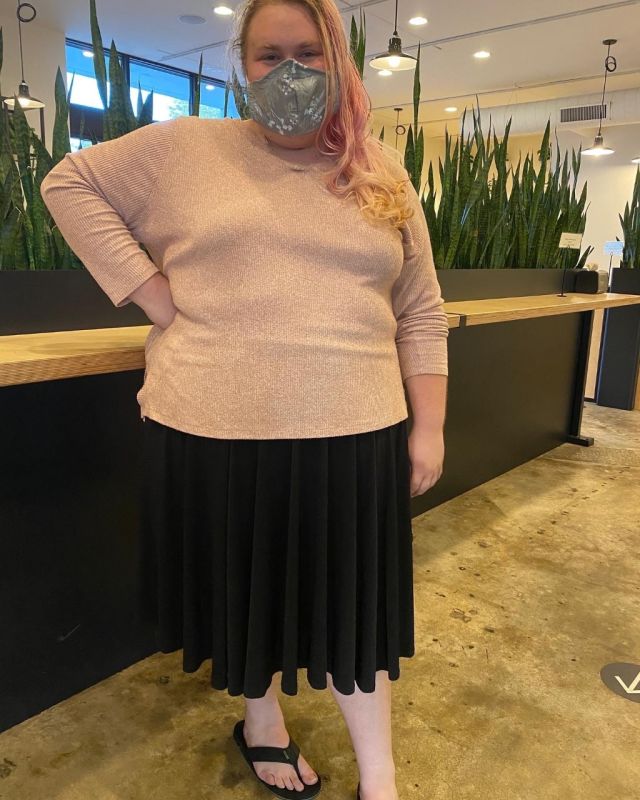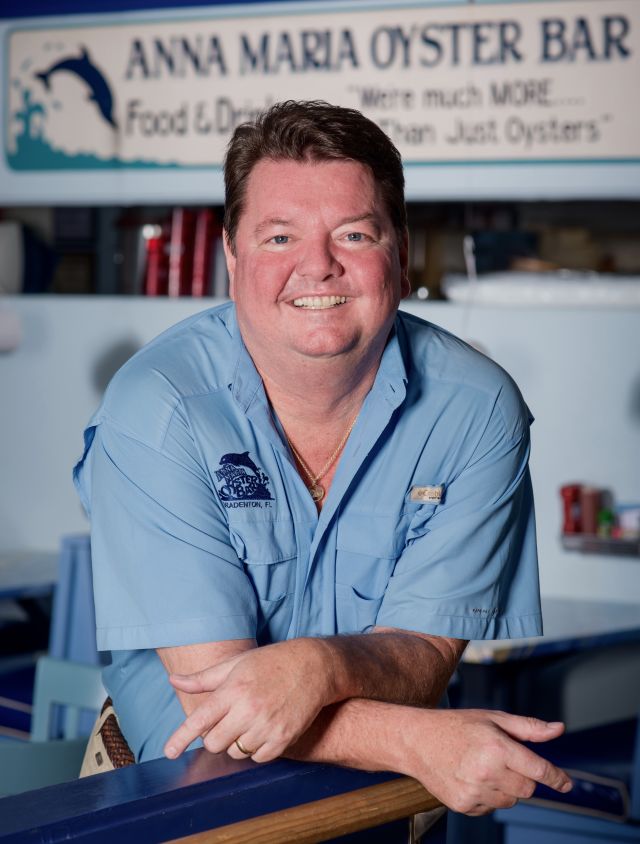
Should Florida Raise Its Minimum Wage to $15 an Hour?
Nathaniel Santiago began working at a McDonald's in Fort Lauderdale for $8.56 an hour, Florida's minimum wage, six months ago. He lost a previous job in a warehouse because of the Covid-19 pandemic, which wiped out roughly $1,500 of his savings, and he was forced to move back home with his mother.
At McDonald's, as an "essential worker," he has remained employed throughout the pandemic. After he learned some new skills, he was upgraded to the position of "crew trainer" and he got a raise—an extra 25 cents an hour.

Nathaniel Santiago
Image: Courtesy Photo
A coworker told Santiago about Fight for $15, a national campaign working to raise wages at companies like McDonald's to $15 an hour, and Santiago decided to join the movement. He also joined in the effort to mobilize voters in Florida to support Amendment 2, a measure on November's ballot that would gradually increase the state's minimum wage to $15.
Many low-wage workers like Santiago say raising the minimum wage just makes sense. It would help them cover basic living expenses like rent and food that they struggle to pay for today and would reduce the stress and pressure that come from living paycheck to paycheck. But many small business owners say otherwise. They argue that raising the minimum wage will force them to reduce the size of their staffs and cut the hours of those who remain and that consumer prices will rise.
For Santiago, the issue is simple. "This is wrong," he says. "We need to be paid what we deserve. How can we be called 'essential workers' and still be paid $8.81 an hour?"
The national minimum wage was created in 1938 as part of the Fair Labor Standards Act, which set the rate at 25 cents an hour. It has risen in fits and starts in the decades since, but it has not kept pace with the country's cost of living. According to a 2019 analysis done by the Economic Policy Institute, a Washington, D.C., think tank, after adjusting for inflation, the minimum wage reached its peak value in 1968. Today, the minimum wage is worth 31 percent less than it was in 1968 and 17 percent less than it was even as recently as 2009, the last time the national rate was increased, to $7.25 an hour.
Some states, like Florida, have created their own formulas for higher minimum wages. In 2004, Florida voters approved a change to the state constitution that set the state's minimum wage at $6.15 and mandated that it be gradually increased each year based on inflation. The current minimum wage in Florida is $8.56.
Amendment 2, if passed in November with more than 60 percent approval, would raise the minimum wage to $10 next September and $1 each year after that, up to $15 in 2026. Beyond that, it would rise each year to keep pace with the Consumer Price Index maintained by the U.S. Bureau of Labor Statistics. The Florida initiative was bankrolled by the well-known attorney John Morgan of Morgan & Morgan, the chairman of the political committee Florida for a Fair Wage, which is supporting the measure.

Patrick Mason, a Florida State University professor of economics and the director of the school's African-American Studies Program.
Image: Courtesy Photo
Patrick Mason, a professor of economics at Florida State University and the director of the school's African-American Studies Program, says taxpayers are footing the bill for the state's low wages. Minimum wage workers often rely on public assistance like Medicaid, the Supplemental Nutrition Assistance Program (i.e. food stamps) and free or reduced lunch programs at local schools to make up for their low pay.
"The employer is the one who's really getting public assistance," says Mason. If the minimum wage does go up, Mason argues, fewer people will need to rely on government programs to get by.
Workers will also have more money to spend, and Mason says they are more likely to re-inject those dollars back into the economy than corporations. "They're going to spend money on food, clothing, shelter," Mason says. "The money will be more likely to be redistributed."
The popular image of a minimum wage employee may be a high schooler working a summer job to scrape together some extra cash, but Mason says that doesn't reflect reality for many low-wage workers. "That's one of the misconceptions," says Mason, "that this is a starter wage for young people." According to the U.S. Bureau of Labor Statistics, 56.9 percent of people earning minimum wage or less are 25 or older.

Sammy Conde works for $10 an hour at a Starbucks near Orlando.
Image: Courtesy Photo
Sammy Conde, 26, earns $10 an hour at a Starbucks near Orlando and became involved with Fight for $15 earlier this year. Conde lives at home with their father.
"It's very tenuous," Conde says. "My dad is stressed out. He works at Disney. He doesn't make a lot, either. He's frustrated with the fact that I'm living with him. I'm trying to make the best of it. It's just really hard to make it on your own right now."
Starbucks paid Conde an extra $3 per hour early in the pandemic, but that extra pay has gone away, and their hours have been reduced. They went on strike with other Fight for $15 supporters in May.
"I want to be treated with dignity," Conde says. "I don't want to be treated with platitudes and pity. I feed Central Florida. I get people going for work with coffee. That is something we need as a society and we need to put value in that. These jobs don't pay people enough to live."
Many business owners, particularly those in the restaurant industry, are opposed to Amendment 2. John Horne, who owns the local Anna Maria Oyster Bar chain, says his labor costs will go up dramatically if the minimum wage hike is approved.
Under current Florida law, tipped employees like restaurant servers must be paid at least $5.54 an hour in wages. The assumption is that tips will bring those employees' earnings up above the $8.56 minimum wage.
If Amendment 2 is passed, the amount a restaurant is responsible for paying tipped employees would slowly rise, up to $11.98 in 2026. Horne says paying a tipped employee that much would increase his labor costs by $617,000 at just one location each year.

Anna Maria Oyster Bar owner John Horne
Image: Courtesy Photo
"Where does that money come from?" Horne asks. "Obviously, the consumer." He says that Amendment 2 would force him to raise the prices on his menu, which would hurt business and in turn force him to reduce the number of people he employs and the amount of hours they can work. It would also make going out to eat more expensive for people whose incomes won't be going up, like senior citizens on fixed incomes.
"No one is against people making more money," Horne says, but he thinks Amendment 2 was poorly designed and will hurt people who live off tips.
The Florida Restaurant & Lodging Association and the National Restaurant Association, two industry trade groups, have begun campaigning against Amendment 2 and have together donated $175,000 to Save Florida Jobs, Inc., a political committee working to defeat the measure. Those groups say passage of the amendment would lead to a loss of 158,000 jobs.
"Everyone wants to make more money," says Mike Quillen, who cofounded the local Gecko's Grill & Pub chain in 1992. "I do. You do. Everyone does." But Quillen says Amendment 2 will not work. "I think it was a bad idea pre-pandemic. Post-pandemic, it horrifies me," Quillen says. "It will cost me hundreds of thousands of dollars."
While large corporations may be able to absorb the extra expense, Quillen says, small businesses like Gecko's will be hard hit. Gecko's employs many career servers who earn well over $15 an hour—even as much as $30-$40, according to Quillen. If the minimum wage goes up to $15, Quillen says, the prices at Gecko's and the cost of living for his employees will also go up. That means fewer employees and more automation. It would also short-circuit opportunities for young people entering the workplace for the first time.
"It's going to absolutely destroy youth employment," Quillen says.
Malin Parker, who owns Sarasota's Screaming Goat Taqueria, says he supports the idea of paying people a living wage, but worries that if starter wages go up, he will then have to raise wages for his employees who are already earning $15 or more.
"We would have no other choice but to raise our prices," Parker says. "The cost of a taco is going to jump from $3 to $4, $5."
Mark Paul, an assistant professor of economics and environmental studies at New College of Florida, says it's an "oversimplification" to assume that consumer costs will automatically rise if the minimum wage goes up. He says higher wages reduce job turnover, which saves businesses money spent training new employees.
"It is possible that a $15 minimum wage leads to modest increases in some prices, say at restaurants," Paul says. "But workers, who tend to spend all their money as opposed to saving some of their money, will turn around and spend their income on rent, food, leisure, etc., which will strengthen the local economy while helping reduce poverty and near poverty—issues that plague the state of Florida."

Ian Steger and Emily Arthur opened Project Coffee with Florian Scheutz last year.
Image: Isaac Eger
Ian Steger, who opened Sarasota's Project Coffee with Emily Arthur and Florian Scheutz in 2019, supports Amendment 2.
From the beginning, the shop's stated ethos was to pay people $15 an hour, the same rate Steger himself takes home. The shop currently employs four, and no one has yet quit. The business is turning a profit, even amid the Covid-19 pandemic and related shutdowns.
Service work can be meaningful and rewarding, Steger says. A job at a coffee shop doesn't have to just be a temporary gig one holds before moving into a "real" career. Businesses like restaurants and coffee shops are magnets for tourists and they bring together friends and families. Steger thinks that work should be valued and well compensated.
"I've found myself in the café," says Steger. "I've come into who I am through service work. It's very social and community-focused. As someone who creates social value and productive value for our city, why must I suffer through poverty wages?"